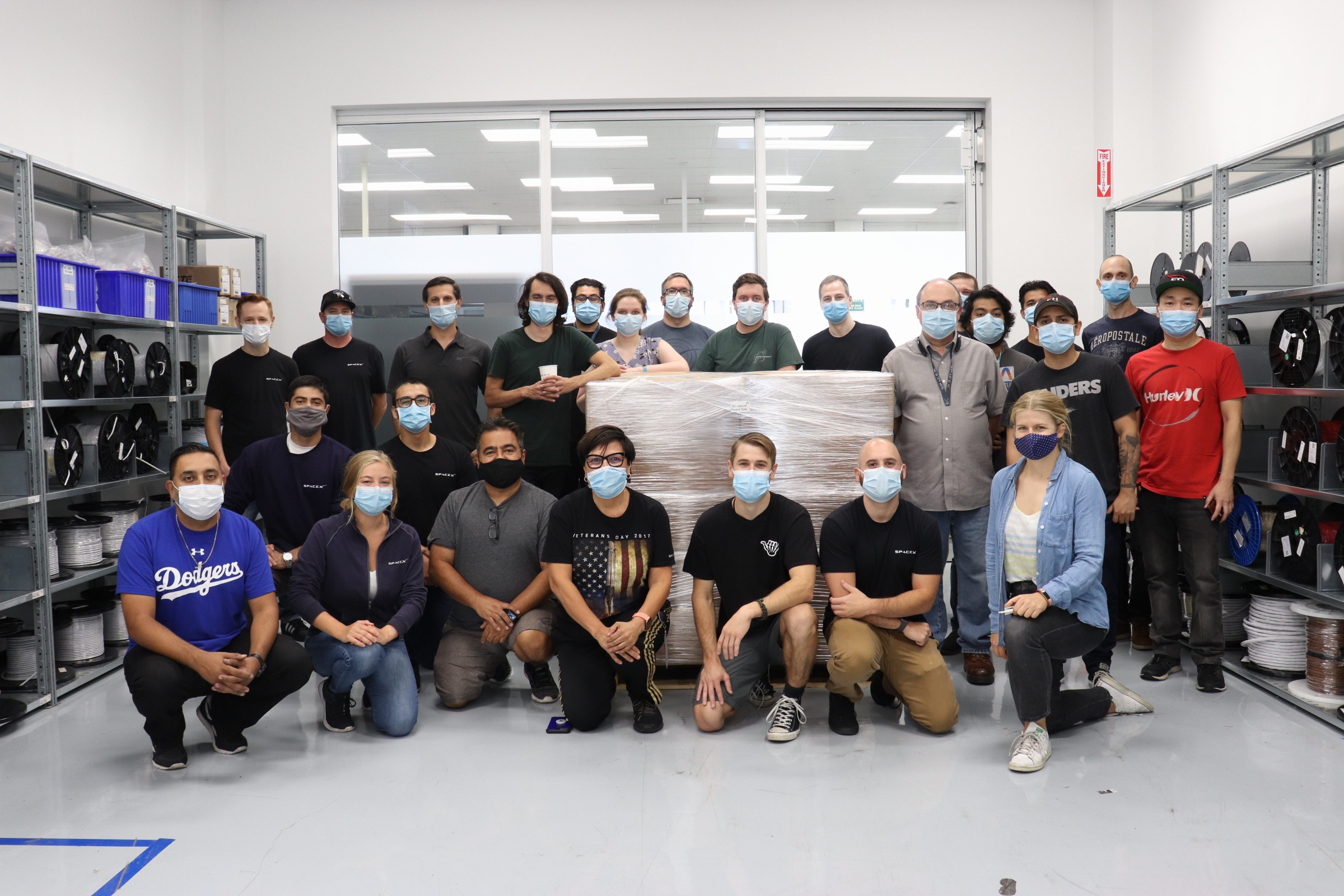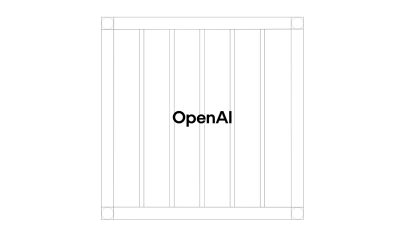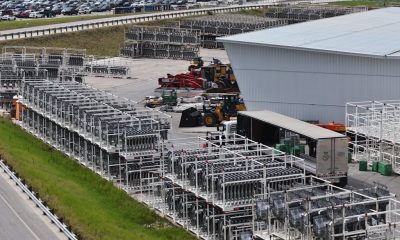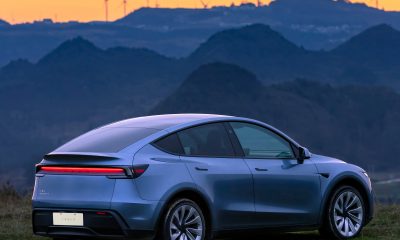

News
Medtronic opens up about Elon Musk and SpaceX’s role in fight against COVID-19
Earlier this year, Elon Musk announced on Twitter that SpaceX would be working with medical device firm Medtronic to help the company produce its most advanced ventilators, which are pivotal in the battle against the pandemic. Details about the two companies’ collaboration have been quite slim since then, with Musk simply noting that SpaceX was producing valves for Medtronic.
In a recent post, Medtronic opted to share some key insights about its work with Elon Musk and his private space enterprise. The medical device maker’s story highlighted the value of Musk’s Silicon Valley-style approach to his companies, which emphasizes quick innovation that’s directed towards the development of real-world, practical solutions in the shortest time possible.
Medtronic’s Puritan Bennett 980 Ventilator Series is the company’s most advanced ventilator. It allows patients to breathe naturally through a series of innovative breath delivery technologies. It’s also fitted with a unique ventilator assistance feature that allows the machine to continue delivering ventilatory support even in the event of certain system failures. The flagship machine is built in Medtronic’s facility in Galway, Ireland, and it has become a staple in numerous hospitals.
In a typical year, Medtronic’s Galway plant could produce about 7,500 valves for its flagship ventilator. But with COVID-19 spreading across the globe, the need for ventilators increased rapidly and significantly. Medtronic promptly increased the production of its ventilators, and by mid-March, the Galway plant had raised its output by 40%. But it was not enough. Building ventilators is a complex process, after all, and the machines require advanced components that are difficult to manufacture.
One of these components is a proportional solenoid (PSOL) valve, a highly complex piece of machinery that controls the flow of air and oxygen inside the machine. The PSOL valve consists of over 50 parts, and each must be manufactured with surgical precision, with some components having tolerances as thin as a strand of hair. Medtronic’s most advanced ventilator used three of these PSOL valves per unit, and as noted by Medtronic Engineer Matt Phillips, the medical device firm was pretty much at a loss about how it could meet the increasing demand for its products.
And then Elon Musk called, and he came with a unique, interesting proposal.
Musk’s private space firm, SpaceX, which made its mark in the industry with its reusable rockets and its Crew Dragon spacecraft, offered to make PSOL valves for Medtronic. SpaceX proved to be the perfect partner for the medical device maker, as it already had a division that designs and manufactures valves for its rockets. The private space enterprise’s engineers were top-notch, and they had the technical expertise to stand up to the challenge. And with that, the two companies’ collaboration began.
In a display of its quick, Silicon Valley-style approach to problem-solving, SpaceX did not waste any time. COVID-19 was not letting up, and neither was Elon Musk’s private space enterprise. SpaceX promptly converted part of its rocket factory in Hawthorne, California to produce PSOL valves with the help of Medtronic employees. To maximize mobility and speed, the team even built a PSOL valve manufacturing line on carts. Ultimately, the SpaceX and Medtronic team achieved in months what might have otherwise taken years.
“They literally turned a rocket production area into a ventilator valve manufacturing facility almost overnight,” Phillips said.
As noted by the Medtronics engineer, SpaceX did not scrimp on its talent, with some of the engineers who worked on the Crew Dragon capsule working on the Medtronic project. Quality control was extremely high, with the valves produced at the SpaceX site undergoing rigorous testing before being shipped to Galway.
“We had their best technicians. We had their best engineers. Some of the people working on this project are the very people who just launched the first private commercial crew to the International Space Station. They brought the same kind of energy to this project that they brought to putting astronauts into space,” Phillips noted.
“When it comes down to it, these ventilators are going to save lives,” Phillips said. “So every component has to be perfect. There is no room for error, which is why we put these valves through such an intensive testing protocol,” the Medtronic engineer added.
Thanks in no small part to the quick initiative of the SpaceX team, the medical equipment company now has the capability to produce 9,000 PSOL valves for Medtronic’s flagship ventilator over the next 8 to 10 weeks. That’s about the same amount of valves that Medtronic’s Galway plant produced in 2019. The Galway facility, for its part, could now operate at five times the volume of its pre-pandemic operations.
“I have never seen anything like this in my life… This project certainly changed the way I look at production, partnership, and innovation. I know that, with the right focus and the right energy, we can take what we learned from this project and apply it to other challenges that come our way,” Phillips remarked.
News
These Tesla, X, and xAI engineers were just poached by OpenAI
The news is the latest in an ongoing feud between Elon Musk and the Sam Altman-run firm OpenAI.

OpenAI, the xAI competitor for which Elon Musk previously served as a boardmember and helped to co-found, has reportedly poached high-level engineers from Tesla, along with others from xAI, X, and still others.
On Tuesday, Wired reported that OpenAI hired four high-level engineers from Tesla, xAI, and X, as seen in an internal Slack message sent by co-founder Greg Brockman. The engineers include Tesla Vice President of Software Engineering David Lau, X and xAI’s head of infrastructure engineering Uday Ruddarraju, and fellow xAI infrastructure engineer Mike Dalton. The hiring spree also included Angela Fan, an AI researcher from Meta.
“We’re excited to welcome these new members to our scaling team,” said Hannah Wong, an OpenAI spokesperson. “Our approach is to continue building and bringing together world-class infrastructure, research, and product teams to accelerate our mission and deliver the benefits of AI to hundreds of millions of people.”
Lau has been in his position as Tesla’s VP of Software Engineering since 2017, after previously working for the company’s firmware, platforms, and system integration divisions.
“It has become incredibly clear to me that accelerating progress towards safe, well-aligned artificial general intelligence is the most rewarding mission I could imagine for the next chapter of my career,” Lau said in a statement to Wired.
🚨Optimistic projections point to xAI possibly attaining profitability by 2027, according to Bloomberg's sources.
If accurate, this would be quite a feat for xAI. OpenAI, its biggest rival, is still looking at 2029 as the year it could become cash flow positive.💰 https://t.co/pE5Z9daez8
— TESLARATI (@Teslarati) June 18, 2025
READ MORE ON OPENAI: Elon Musk’s OpenAI lawsuit clears hurdle as trial looms
At xAI, Ruddarraju and Dalton both played a large role in developing the Colossus supercomputer, which is comprised of over 200,000 GPUs. One of the major ongoing projects at OpenAI is the company’s Stargate program,
“Infrastructure is where research meets reality, and OpenAI has already demonstrated this successfully,” Ruddarraju told Wired in another statement. “Stargate, in particular, is an infrastructure moonshot that perfectly matches the ambitious, systems-level challenges I love taking on.”
Elon Musk is currently in the process of suing OpenAI for shifting toward a for-profit model, as well as for accepting an investment of billions of dollars from Microsoft. OpenAI retaliated with a counterlawsuit, in which it alleges that Musk is interfering with the company’s business and engaging in unfair competition practices.
Elon Musk confirms Grok 4 launch on July 9 with livestream event
News
SpaceX share sale expected to back $400 billion valuation
The new SpaceX valuation would represent yet another record-high as far as privately-held companies in the U.S. go.

A new report this week suggests that Elon Musk-led rocket company SpaceX is considering an insider share sale that would value the company at $400 billion.
SpaceX is set to launch a primary fundraising round and sell a small number of new shares to investors, according to the report from Bloomberg, which cited people familiar with the matter who asked to remain anonymous due to the information not yet being public. Additionally, the company would sell shares from employees and early investors in a follow-up round, while the primary round would determine the price for the secondary round.
The valuation would represent the largest in history from a privately-owned company in the U.S., surpassing SpaceX’s previous record of $350 billion after a share buyback in December. Rivaling company valuations include ByteDance, the parent company of TikTok, as well as OpenAI.
Bloomberg went on to say that a SpaceX representative didn’t respond to a request for comment at the time of publishing. The publication also notes that the details of such a deal could still change, especially depending on interest from the insider sellers and share buyers.
Axiom’s Ax-4 astronauts arriving to the ISS! https://t.co/WQtTODaYfj
— TESLARATI (@Teslarati) June 26, 2025
READ MORE ON SPACEX: SpaceX to decommission Dragon spacecraft in response to Pres. Trump war of words with Elon Musk
SpaceX’s valuation comes from a few different key factors, especially including the continued expansion of the company’s Starlink satellite internet company. According to the report, Starlink accounts for over half of the company’s yearly revenue. Meanwhile, the company produced its 10 millionth Starlink kit last month.
The company also continues to develop its Starship reusable rocket program, despite the company experiencing an explosion of the rocket on the test stand in Texas last month.
The company has also launched payloads for a number of companies and government contracts. In recent weeks, SpaceX launched Axiom’s Ax-4 mission, sending four astronauts to the International Space Station (ISS) for a 14-day stay to work on around 60 scientific experiments. The mission was launched using the SpaceX Falcon 9 rocket and a new Crew Dragon capsule, while the research is expected to span a range of fields including biology, material and physical sciences, and demonstrations of specialized technology.
News
Tesla Giga Texas continues to pile up with Cybercab castings
Tesla sure is gathering a lot of Cybercab components around the Giga Texas complex.

Tesla may be extremely tight-lipped about the new affordable models that it was expected to start producing in the first half of the year, but the company sure is gathering a lot of Cybercab castings around the Giga Texas complex. This is, at least, as per recent images taken of the facility.
Cybercab castings galore
As per longtime drone operator Joe Tegtmeyer, who has been chronicling the developments around the Giga Texas complex for several years now, the electric vehicle maker seems to be gathering hundreds of Cybercab castings around the factory.
Based on observations from industry watchers, the drone operator appears to have captured images of about 180 front and 180 rear Cybercab castings in his recent photos.
Considering the number of castings that were spotted around Giga Texas, it would appear that Tesla may indeed be preparing for the vehicle’s start of trial production sometime later this year. Interestingly enough, large numbers of Cybercab castings have been spotted around the Giga Texas complex in the past few months.
Cybercab production
The Cybercab is expected to be Tesla’s first vehicle that will adopt the company’s “unboxed” process. As per Tesla’s previous update letters, volume production of the Cybercab should start in 2026. So far, prototypes of the Cybercab have been spotted testing around Giga Texas, and expectations are high that the vehicle’s initial trial production should start this year.
With the start of Tesla’s dedicated Robotaxi service around Austin, it might only be a matter of time before the Cybercab starts being tested on public roads as well. When this happens, it would be very difficult to deny the fact that Tesla really does have a safe, working autonomous driving system, and it has the perfect vehicle for it, too.
-

 Elon Musk1 week ago
Elon Musk1 week agoTesla investors will be shocked by Jim Cramer’s latest assessment
-

 News2 weeks ago
News2 weeks agoTesla Robotaxi’s biggest challenge seems to be this one thing
-

 Elon Musk1 day ago
Elon Musk1 day agoElon Musk confirms Grok 4 launch on July 9 with livestream event
-

 News2 weeks ago
News2 weeks agoWatch the first true Tesla Robotaxi intervention by safety monitor
-

 News5 days ago
News5 days agoTesla Model 3 ranks as the safest new car in Europe for 2025, per Euro NCAP tests
-

 Elon Musk2 weeks ago
Elon Musk2 weeks agoA Tesla just delivered itself to a customer autonomously, Elon Musk confirms
-

 Elon Musk2 weeks ago
Elon Musk2 weeks agoElon Musk confirms Tesla Optimus V3 already uses Grok voice AI
-

 Elon Musk2 weeks ago
Elon Musk2 weeks agoxAI welcomes Memphis pollution results, environmental groups push back















